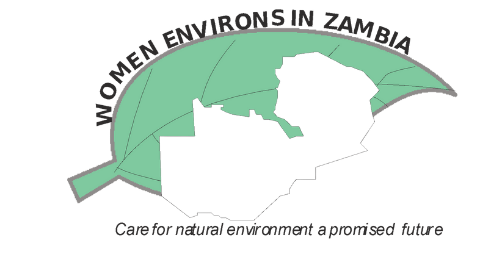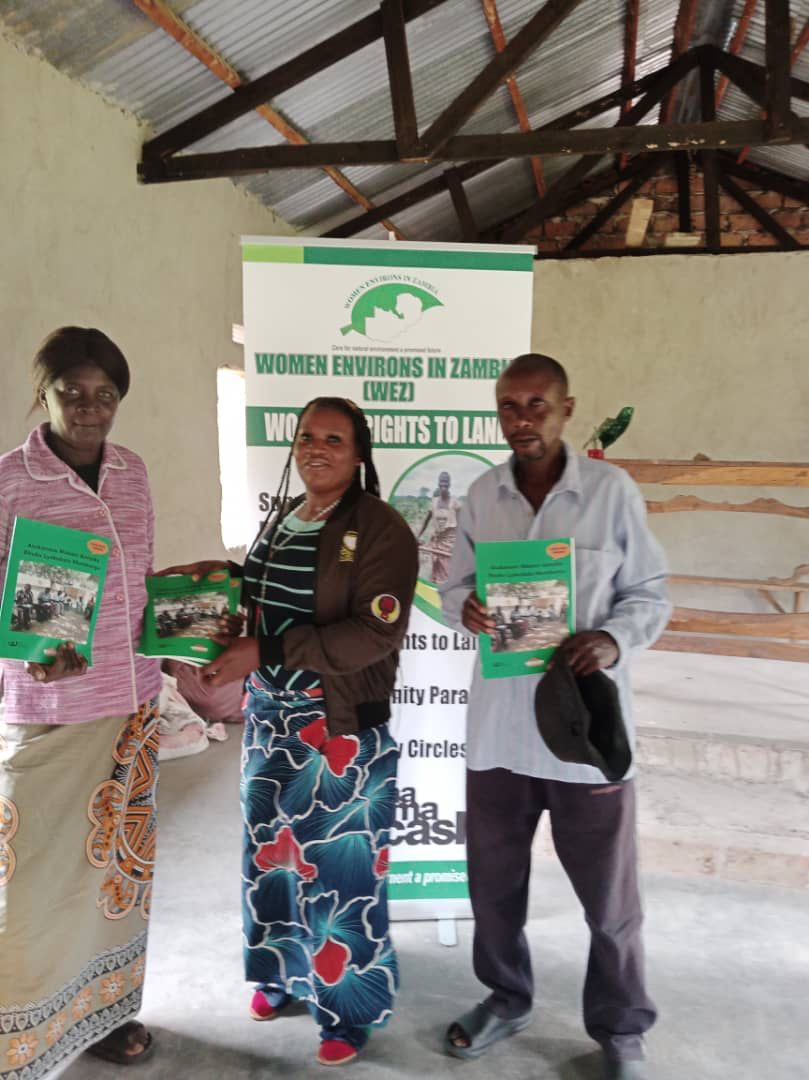Land rights capacity building is a process of empowering individuals and communities to identify, defend and realise their rights to land. It is a key part of reclaiming and protecting land rights of people, particularly those whose rights are challenged and oppressed. Land rights capacity building is an essential part of any effort to create and maintain secure and equitable access to land resources.
On 5th January 2023, WEZ coordinator, Susan Chilala, handed over land study circle handbooks to Headman Muwana and Vice Chairwoman Chisamba district and explained the objectives of the study circle on land in Chisamba. The handbook was designed to help women in the Kabwe district understand their land rights and how to effectively protect and defend them by Zambia Land Alliance (ZLA). The meeting also addressed the rights of married women in particular, as they are often denied their land rights due to traditional and cultural norms.
Throughout the meeting, WEZ Vice Chairwoman encouraged the study circle to become more active in their pursuit of information and knowledge to empower them to defend their land rights. She highlighted the importance of the study circle in continuing their learning journey, especially for married women who are often challenged in protecting their land rights.
The study circle programs that were established in Chisamba District are a great example of successful land rights capacity building. Through the program, 40 members came together to learn about land rights as well as to develop strategies to defend their rights. It demonstrated the importance of collective action in order to protect land rights for women, and how collective voice can bring about positive change.
Evidently, land rights capacity building is essential in protecting and defending land rights, especially for vulnerable communities such as married women. It is important to recognize that land rights are not only legal rights, but also socio-economic and cultural rights. Through collaborative efforts and collective action, individuals and communities can reclaim and protect their land rights.

